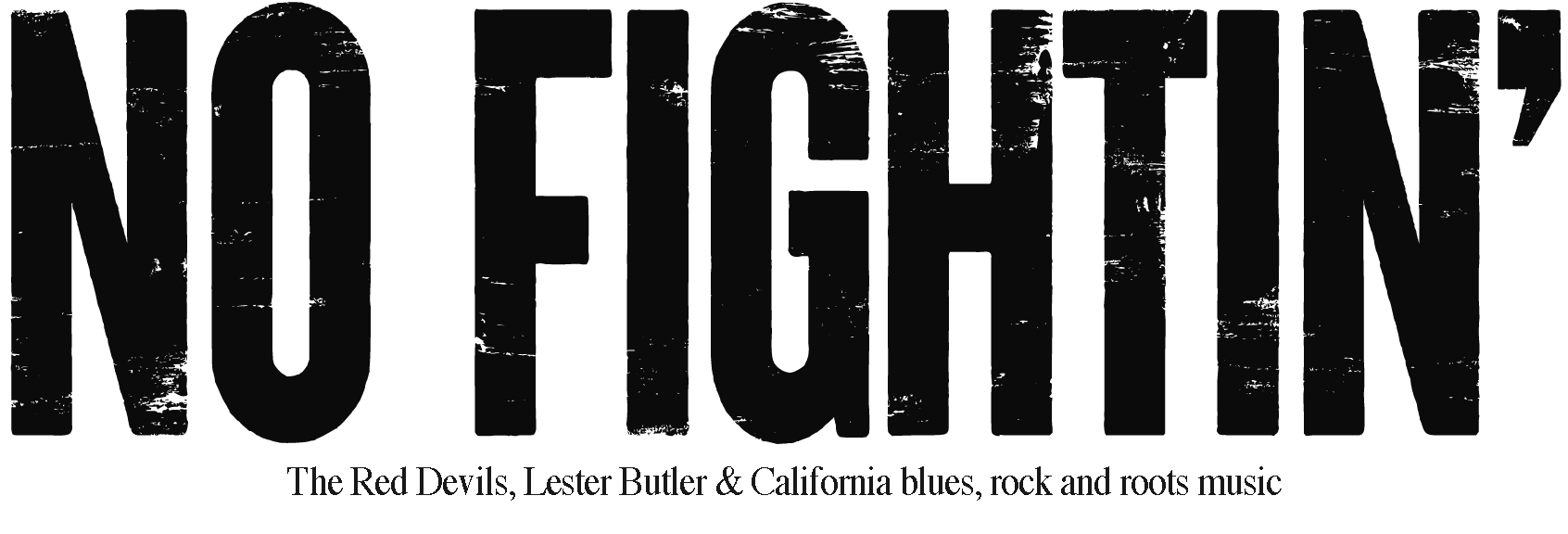Certainly one of Lester Butler’s last televised appearances was made on the March 6, 1998, edition of VPRO’s “Lola Da Musica” program in The Netherlands. Just two months later, Butler would die in L.A.
The program — featuring Butler co-billed with folk-hop jammer G. Love — has been widely distributed by fans of both for years. The two were featured on an episode themed “this is the modern blues,” with each showing and telling how they’ve brought blues influences into a more modern setting.
Roughly translated by nofightin.com, VPRO promoted the show this way:
Young American bandsmen always seem to draw more often from the rich heritage of the blues. … Lester Butler (Virginia, 1959-1998) on the other hand was especially in search of malicious and sharp lowdown version of electric blues such as Little Walter, Sonny Boy Williamson and Howlin’ Wolf made. In May 1998 Lester Butler died to a overdose. … Lola brought Lester Butler with G.Love for a session and spoke exhaustively with them concerning their contemporary conception of blues, their musical heroes and their instrument the harmonica.
It’s a great document of Butler, who seemed quite happy and creative in the video. An in-studio jam with G. Love and Special Sauce on Junior Wells’ Willie Cobbs’ “You Don’t Love Me” is a particular highlight; watching Butler play with the funky, laid-back G. Love ban is pretty cool. In addition, several clips are shown of Butler and 13 (Alex Shultz, Eddie Clark and Mike Hightower) performing at Doornroosje, Nijmegen, Holland, most likely the Jan. 29, 1998, gig. Those clips include “I Wish You Would,” “Automatic,” “So Low Down” and “Devil Woman.”
Finally, Butler is interviewed on a wide range of topics, including:
Blues music:
“Blues, the way I play it, is low down and it’s gotta have a certain dirtiness to it. Why would you play this technical, clean sounding, modern sounding stuff? I mean the very nature of blues, that’s the beauty of the music that I know. It’s got a certain … edge to it, a certain roughness to it.”
Finding the blues and harmonica:
“I was raised in Virginia, and when my mother would go away to work the people who would take care of me were older black people. And they listened to blues music on the radio. So I was a little baby, too young to know what was up. And I heard it, and I had a little harmonica toy and I would copy it. … It was my toy when I was a baby and it’s kept me company my whole life, y’know, through good times and bad.”
Music and life:
“Where I came from … a lot of my friends have fallen victim to … they’re either in jail, or dead, or they’re in recovery. And there’s a lot of that going around in my neighborhood, in my class of people where I grew up. And instead of that, I’ve been all over the world, I’ve done things I just never thought I would do. I’ve been on private jets flyin’ here and there, work with Mick Jagger and Rod Stewart and Johnny Cash and all these people that were my heroes. Music saved my life!”
Blues as art:
“Blues is still music, it’s still art, it’s still about creativity, it’s still about turning emotions, feelings, into sounds. And that’s where I come from. … the blues police don’t like it, and they’re out to get me, OK, but I’m not [holds up harp] gonna stop!”

